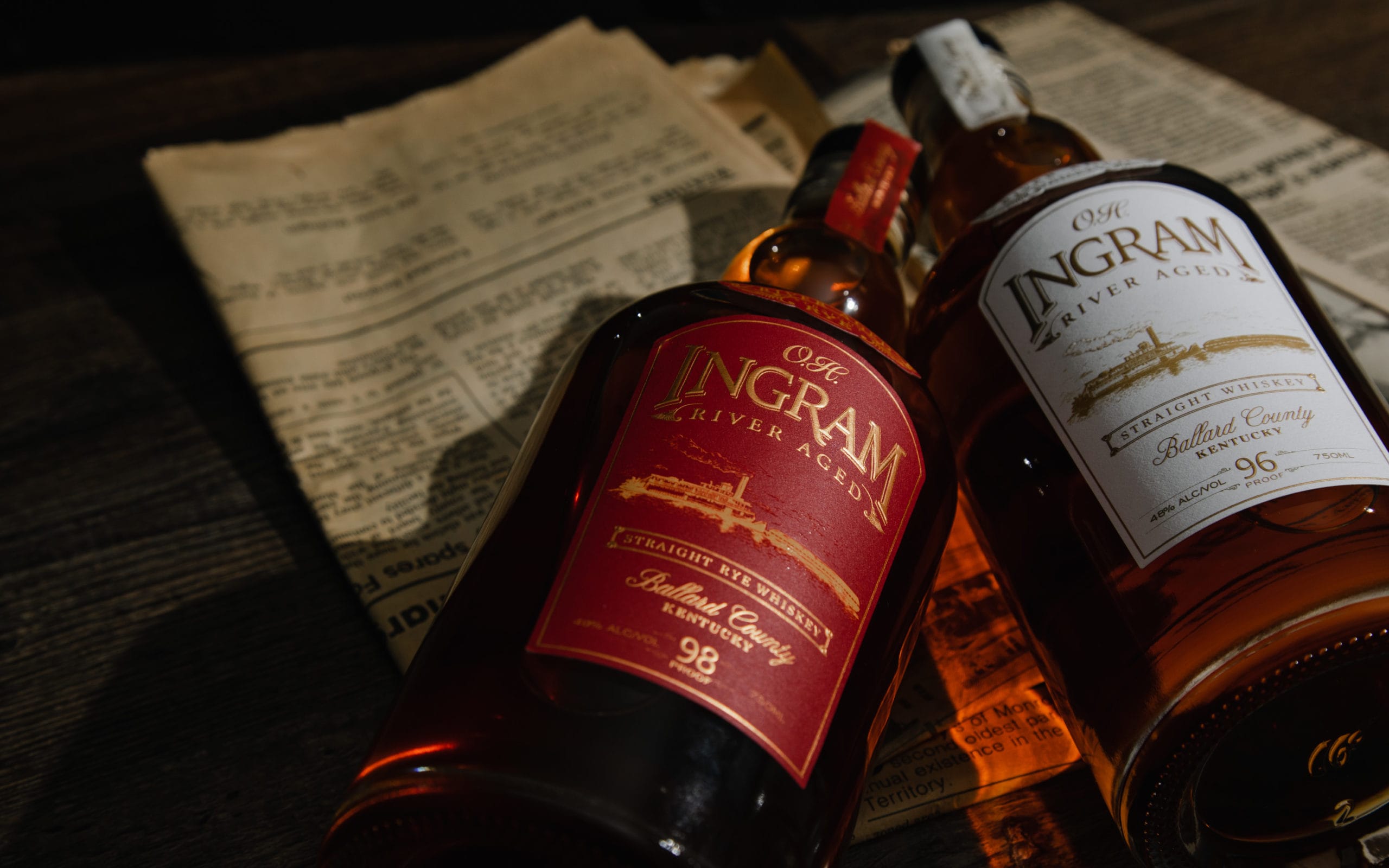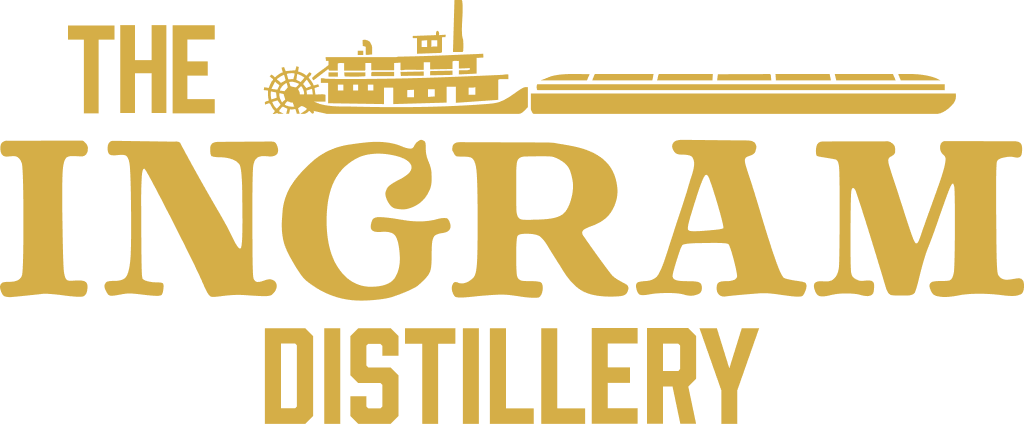
Three Local Spirits Entrepreneurs Boldly Sail Into the Headwinds
Taking a look at new brown-liquor peddlers Guidance Whiskey, Nashville Barrel Company and O.H. Ingram River Aged Whiskey
Launching any new venture during a pandemic is risky. But releasing new artisan spirits can be particularly difficult, owing to the need to encourage sampling to create new fans. Yet even with consumers looking to get in and out of their favorite liquor store as quickly as possible, three local entrepreneurs are depending on their own ingenuity to establish new brands that are quickly taking off.
Guidance Whiskey
Tennessee State University grad Jason Ridgel got into the spirits business through the side door. “I was living in Los Angeles working in medical equipment sales,” he says. “I would put on these events for doctors, and I saw that half the budget was being spent on alcohol. I realized I couldn’t let that pass me by.”
Ridgel decided to jump into the business of booze, but not as a distiller. “There’s not a lot of profit in the alcohol business, and nobody would talk to me unless I had a crazy big budget,” he says. “I realized it was easier to contract distill, and cleaned out my savings to get started.”
With the huge Kentucky distillers unwilling to pay attention to him, Ridgel looked elsewhere — specifically to Iowa. “Whiskey is mostly corn, and Iowa is where all the corn is, plus they’ve got great water,” he says. He found a distiller willing to take a chance on his new venture, and went back and forth for about a year to come up with the 88 percent corn recipe that has become Guidance Whiskey. “I’m not a master taster or anything,” explains Ridgel, “but for me it’s all about drinkability. I got tired of lying and saying I liked something I didn’t like!”
Although Ridgel doesn’t distill his product, he made sure to be on premises when the first batch of 5,000 bottles was being produced. “I had to go to Iowa in December, and it changed me as a man!” Ridgel says. “I grew up in Alabama, so I couldn’t believe people were so happy and normal in 10 inches of snow.”
Ridgel is proud that Guidance is one of just two Black-owned spirits suppliers in the state, along with Uncle Nearest. His 80-proof whiskey is now distributed at retail in Tennessee, Kentucky, Georgia, New York and Florida, and it’s also available online in 44 states.
Ridgel named the product to honor those who have offered him guidance throughout his life, and he aims to pay it forward by mentoring other Black-owned alcohol brands looking to enter the marketplace. “I’ve already helped launch five other minority brands, and I’m really proud that Guidance will be going into the new National Museum of African American Music when it opens,” he says. “Most of all, I’m looking forward to getting in front of more people as things open up. That’s my real joy!”
Nashville Barrel Company
Like Ridgel, Michael Hinds specializes in selling sourced whiskey, specifically rye whiskey. Through his Nashville Barrel Company, Hinds has quickly attained cult status for his exceptional barrel picks from MGP, an Indiana distillery that provides rye whiskey for many other familiar brands.
Hinds’ business started out as a charitable venture and a way to share his remarkable palate with others for a good cause. “It was a passion project,” he recalls. “I was on the board of a bourbon charity, and we began seeking out special single barrels to bottle for fundraisers. Just this year, we’ve raised more than $25,000 for the Leukemia & Lymphoma Society.” Particularly popular at auction are bottles that Hinds releases under his private “Fuck Cancer” label.
Most consumers don’t know they can work with distilleries through local retailers to purchase entire single barrels, and even design their own labels for bottling. Hinds has been part of those private pick groups for years, tasting through a selection of barrels to pick just the right one.
Hinds has recently taken his charitable hobby and transitioned it into a real business with Nashville Barrel Company. His first three NBC barrel picks were cask-strength rye whiskeys offered in extremely limited releases. “All of them sold out in about an hour,” he boasts. These single barrels were released at their barrel proofs to showcase the bold elements of the wood and spice in a fine rye whiskey, but now Hinds is aiming at some new products with lower proof and price levels.
Hinds wants to offer products that will be easier to find at your favorite spirits store — a “shelfer,” as he calls it. Instead of single barrels, the new whiskey is a small-batch blend of 4-year-old and 7-year-old ryes, bottled at 100 proof. “I think 100 proof is better for cocktails but still strong enough to show the backbone,” he says. “I think that the 7-year-old balances out the tannins with the 4-year old.”
Nashville Barrel Company Small Batch Rye Whiskey Batch 1 retails around $60 a bottle — quite a lot less than the single-barrel editions. Hinds still expects each new batch to have its own unique character, and each label will feature some aspect of Nashville life, which is why the first batch is subtitled “Music.”
Future plans include a new building to house a tasting room, company offices, bottling operations and barrel storage in the emerging Railyard District southeast of downtown. Hinds also expects his product line to grow over time. “We’re a transparent group that relies on access and our ability to pick great barrels. We already own barrels from outside of Indiana, including ryes, bourbons and rums, so you’ll be seeing a lot of new things from us in the future.”
O.H. Ingram River Aged Whiskey
The staid whiskey business doesn’t always reward out-of-the-box thinking, preferring instead to trade on history and tradition — but that doesn’t mean people aren’t trying new things. The risk of veering from the middle of the road is that the spirits biz is an incredibly capital-intensive industry, and the results of experimentation won’t be known or appreciated until years after production.
So it helps to have a firm financial base on the front end of such a leap of faith. That’s the enviable situation that Hank Ingram finds himself in with his new venture, O.H. Ingram River Aged Whiskey. Don’t begrudge the scion of the family behind Ingram Industries — the barge construction, book production and distribution company — for starting out with a support structure behind him. The intrinsic uncertainty of creating new products is still very real and present with his fledgling whiskey company, but his passion for it is also genuine, as is the hard work he is pouring into O.H. Ingram.
The idea started out as a competition in business school in 2014. “We won despite the fact we were the only concept in the class that couldn’t show a profit in the first three years,” Ingram says. While contemplating a business plan as part of the competition, Ingram knew he was interested in something to do with whiskey, and most of the businesses associated with his family had something to do with the river.
The idea started out as a competition in business school in 2014. “We won despite the fact we were the only concept in the class that couldn’t show a profit in the first three years.”
Hank Ingram
A legend behind bourbon’s creation is that barrels of unaged whiskey traveled by riverboat from Kentucky distilleries to New Orleans, and by the time they had transited the Ohio and Mississippi rivers, the time and rocking of the boats had introduced the nuances of the charred oak staves into the whiskey, markedly improving it when it arrived. This story sparked Ingram’s new business concept — aging whiskey on company barges rolling on the river.
One problem quickly arose. “It’s illegal to age spirits on the water,” says Ingram. “You’d have to figure out ways to apportion the alcohol taxes in each state along the way, and you must maintain a bonded warehouse open for inspection.”
Undeterred, Ingram set to work designing a special floating rickhouse and refurbishing a former grain barge to hold a new sort of grain product — grain whiskey. His patent-pending river-aging process depends on the vertical movements of the barge docked on the Mississippi River in Wickliffe, Ky., to agitate the barrels and increase the surface contact between oak and whiskey.
Ingram purchased barrels of unaged whiskey and got involved at the cooperage level to choose the toast and char levels of the barrels that would store his juice. Working with one other employee, Ingram has loaded more than 1,200 barrels onto the barge. For more than three years, his whiskeys have been riding the waves, but that’s not the only factor that encourages wood-whiskey interaction. One reason why Kentucky and Tennessee make such great whiskeys is the vast difference in temperatures between our summers and winters, alternately expanding and contracting the grains in the barrel staves to cycle the aging whiskey.
On the barge, Ingram sees that happening much more rapidly. “We try to take a scientific approach to all this, and we’re seeing a big diurnal shift in temperature over days and weeks, as much as a 60-degree swing in a month. I like to think that we can maintain the sweetness of the grain while introducing the complexity of the barrel.”
O.H. Ingram’s first release is a novel blend of high-rye-content bourbon with a 95 percent rye whiskey, and it retails for $79.99. It definitely tastes older than it is, and the product has been flying off of shelves, selling halfway through the initial 10,000-bottle allocation at 150 retail accounts in two weeks. Ingram plans to have three products in the market over the next year and is already thinking about the future. “We’ll concentrate on rye and bourbon,” he says. “I’m already guessing our 2030 sales and forecasting backwards, but that’s OK. I’m used to thinking in barges and tons anyway.”
— Nashville Scene
